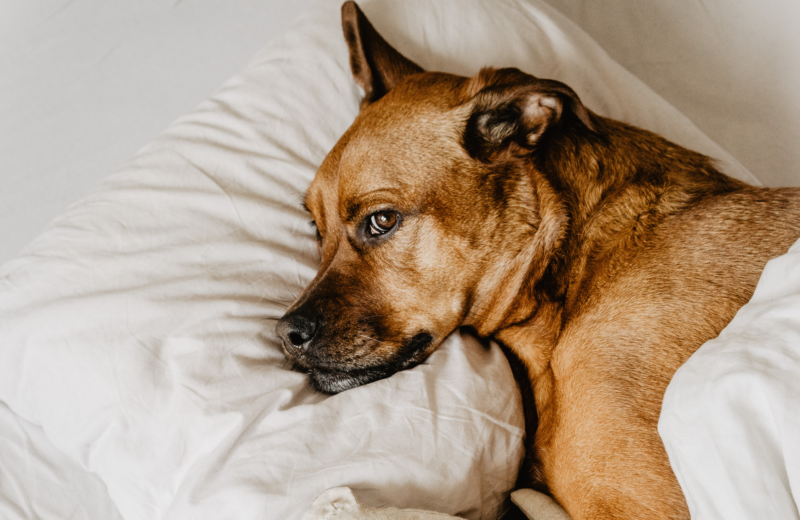Studies have shown that there is a direct relationship between the amount of sleep you get and your physical and mental health, as well as the quality of life while you are awake. When you fall short and are unable to get the required amount of sleep that your body requires, a serious toll is going to be taken on your body, affecting your energy during the day, your productivity, your emotional state, and even how much you weight. Yet there are still many people out there who continuously toss and turn all night long, struggling to get the amount of sleep that they actually need.
But don’t get discouraged, as there is a solution to this lack of sleep problem. When you make a few simple, yet important changes to your current routine and nighttime habits, it can have a huge affect on how you will sleep, causing you to be more focused, mentally sharp, emotionally stable, and with more energy during the day than you will know what to do with. So the big question is, how do you get a better night’s sleep?
How You Can Get a Better Night’s Sleep
When you are sitting in bed starring at your bedroom ceiling at 3 a.m., getting a quality night’s sleep may seem like something that you are never going to experience. However, whether you realize it or not, you actually have way more control over your sleep quality than you may think. Similar to how you are feeling in the morning hours will often depend on how great your sleep the night before was, often times the cure for any sleep issues you may be experiencing can be found throughout your regular daily routine.
When you have unhealthy daytime habits, these bad lifestyle choices can easily be the culprit behind your trouble getting to sleep at night. On top of that, they can also potentially adversely affect your brain, heart, mood, creativity, weight, immune system, and vitality. But when you start to experiment with different tips and ideas to get a better night’s sleep, you can actually start to improve your physical and mental health, improve how you feel and think in during the day, and best of all, get a better quality of sleep at night.
Here are some tips to help you get the best night’s sleep ever.
Tip #1: Stay within your natural sleep cycle
When you are able to get in sync with your body’s circadian rhythm, also referred to as your natural sleep-wake cycle, it will have the greatest affect on your ability to sleep better. When your sleep-wake schedule is consistent, you will feel much more energized and refreshed, when compared to getting the same amount of sleep on a consistent basis, but during different times throughout the day.
What you are going to want to do in order to get in a consistent sleep-wake schedule, it to make an effort to go to sleep and wake up at the same exact time every single day, no matter what. This will help your body set its internal clock and also help to optimize your quality of sleep. To make this process as simple as possible, be sure that you select a bed time when you are normally already feeling somewhat tired, which will help prevent you from tossing and turning all night. If you are getting your required amount of sleep, your body will start to wake up without the use of an alarm clock. But if you do need the help of an alarm clock to wake up, this is a good sign that you may need to try and get to bed a little earlier.
Another way to get your sleep-wake cycle into a routine is to stop sleeping in, even if it is a weekend. When you have a different sleep schedule on the weekend than on weekdays, you may start to experience symptoms that are similar to jetlag. If you are trying to accommodate for a late night, you should still wake up at your regular time, but take a nap during the day if you need too. This will allow you to help pay off the amount of sleep debt that you have, but without throwing your natural sleep-wake cycle out of sink.
Also, when you do take a nap, be sure that you are doing so smartly. Yes, naps are a great way for you to make up for sleep you didn’t get the night before. However, a nap that lasts longer than 15-20 minutes is actually going to make things even worse for you. With that being said, try to make sure that your 15-20 minute naps are only happening in the early afternoon. This is a huge part of keeping your sleep cycle in check.
Finally, do your best to fend off any post-dinner drowsiness that you may have. If you start to feel sleepy hours before your regular bedtime, try to get up and start moving. This can include something that is considered to be mildly stimulating, such as picking out your outfit for the next day, talking with a friend or roommate, or even doing the dishes. If you do eventually give in to your drowsiness, you may find yourself awake in the middle of the night, having trouble falling back asleep.
Tip #2: Control your light
Melatonin is a hormone that helps control your sleep body’s cycle. Melatonin is also heavily affected by exposure to light. In fact, when it is dark, your brain is going to create more melatonin, which in turn will help to make you sleepier. When it is light out, there is going to be less melatonin, leading you to be much more alert. For this reason, you are going to want to control your exposure to any kind of light by following these simple tips.
During the day time:
- Always try to expose yourself to as much sunlight as possible in the morning hours.
- Spend as much time as you can out in the sun everyday.
- Try to allow as much natural light as possible into your home and work.
- Try using a light therapy box.
During the night:
- Shut down all screens about an hour or two before bedtime.
- Say goodbye to late night TV watching.
- Don’t read using any kind of backlit devices.
- Make sure that you are sleeping in a dark room.
- Don’t turn the lights all the way up if you wake during the night.
Tips #3: Get your exercise in during the daytime
People who are able to exercise on a regular basis are more likely to experience a great night of sleep, as well as feel more energized during their day. In fact, studies have proven that getting regular exercise is one of the best ways to help improve your quality of sleep, as well as improve any symptoms of sleep apnea or insomnia, and can even increase your time in the deeper stages of sleep too.
Just be sure to remember that:
- The more intense your workout is, the more powerful your sleep will become. But know that any intensity of exercise will aid in improving your sleep quality.
- It can take up to a few months before you are able to actually feel the full sleep promoting benefits that exercise provides.
- The best time that you can exercise is in the morning or early afternoon. When you exercise, your metabolism is going to speed up, your body temperature is going to elevate, and your hormone levels are going to be stimulated. If this happens when it is too close to bed time, you will have more trouble falling asleep than if you did your workout in the earlier part of the day.
Tip #4: Eat and drink the right stuff
What you eat and drink during the daytime has a huge affect on how well you will sleep later that night. This is especially true when it comes to what you eat and drink just hours before bedtime. Here are some guidelines to help you out:
- Limit any nicotine and caffeine
- Try to avoid larger meals at nighttime.
- Skip the alcohol right before going to bed
- Don’t drink too many liquids in the evening hours.
- Limit the amount of refined carbs and sugary foods that you consume.
With that being said, if you do get hungry during the night, there are some snacks that can actually help you to get to sleep. So if you do need some type of bedtime snack, try eating these:
- Turkey sandwich
- Smaller sized bowl of low-sugar, whole-grain cereal
- Yogurt or milk
- Banana
If you are having trouble falling asleep, it can be the worst thing ever. It will not only leave you tossing and turning all night long, but can have negative consequences during the day as well. When you follow the tips that have been mentioned above, you will be ensuring that you will get the best night’s sleep ever.

